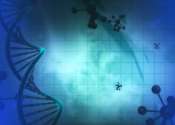How the brain and its arteries communicate to supply blood to areas of heightened neural activity
The brain is a ravenous organ. A three-pound adult human brain consumes about a fifth of the body's energy, yet it cannot store energy on its own and requires constant nourishment from the cardiovascular system. The organ's ...
Feb 19, 2020
0
107









